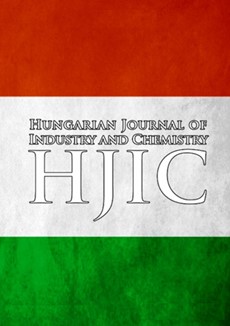Analysis of Crude Oil in Terms of Fouling and Corrosion
DOI:
https://doi.org/10.33927/hjic-2019-15Keywords:
crude oil, fouling, corrosion, emulsion, desalter, compatibility, asphaltenesAbstract
The present-day oil refining market has the potential to process opportunity crudes. The degree of corrosion and fouling issues has increased in terms of processing opportunity crudes. In the case of changing crude slates, predicting the impacts of crude oil on production is necessary to ensure safe and profitable processing. Crude oil can be characterized by the quantitative and qualitative analyses of saturates, aromatics, resins, asphaltenes and contaminants as well as the determination of its physical and chemical properties. The complementary nature of these analyses is necessary to identify the root causes of fouling and corrosion problems and quantify the impact of them. In this study, analytical methods were developed to investigate the effect of crude oils on production in terms of fouling and corrosion, which can be used to characterize crude oil from different sources. The compatibility, emulsification tendency and fouling potential of crude oil were analyzed by the developed analytical methods. The measurement method to assess the compatibility of crude oils is based on the determination of the flocculation tendency of asphaltenes in oils. A Porla GLX Step Analyzer was used for the compatibility tests. Emulsification and fouling tendencies were measured by our in-house designed laboratory equipment. These measurements were conducted under typical operating conditions. The developed analytical methods were validated by crude oils from five different sources.Downloads
Published
2019-12-12
Issue
Section
Articles
How to Cite
Analysis of Crude Oil in Terms of Fouling and Corrosion. (2019). Hungarian Journal of Industry and Chemistry, 47(2), 11-15. https://doi.org/10.33927/hjic-2019-15




